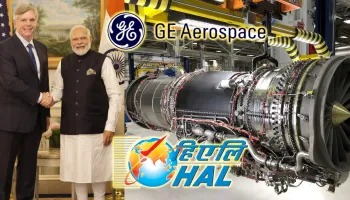Hindustan Aeronautics Limited (HAL) has publicly denied recent reports suggesting that negotiations with General Electric (GE) over the F414 engine deal have stalled or hit a dead end. The company clarified that discussions on the Transfer of Technology (ToT) for the GE 414 engine programme are ongoing, with no final agreement reached yet, but talks remain active and constructive.
Key Highlights:
No Breakdown in Talks: Despite media reports about a significant roadblock—mainly over GE’s request for an additional $50 million and expanded technology transfer—HAL insists negotiations have not collapsed. Both sides are still working through technical and commercial details, including the scope of technology to be shared and pricing.
80% Technology Transfer in Focus: The deal aims for HAL to manufacture the F414 engines in India with up to 80% technology transfer, a significant leap from previous agreements. This would allow India to produce critical engine components domestically, supporting advanced fighter jets like the Tejas MkII and the upcoming AMCA.
Ongoing Government Reviews: The agreement is subject to review and approval by both Indian and US governments, given the sensitive nature of the technology involved. Both parties are navigating complex regulatory and intellectual property considerations.
Negotiations Continue: HAL’s leadership has confirmed that a Contract Negotiation Committee is actively engaged with GE, and technical teams from both sides are exchanging documentation and clarifying requirements. The process is expected to stretch into the coming months, but HAL remains optimistic about reaching a deal.
No Serious Cost Escalation Yet: While cost and technology transfer remain under discussion, HAL has stated it is too early to conclude there will be a major cost increase or that talks are at risk of failing.
In summary, HAL has reassured stakeholders that the GE 414 engine ToT programme is still very much alive, with negotiations progressing, albeit slowly, toward a mutually beneficial agreement.
Sources: CNBC-TV18, IDRW, MRO Business Today
